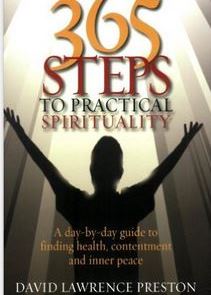Intuition is the sixth sense. It is the ability to come to correct conclusions from limited data, without resorting to memory, analysis or deductive logic. It is part of everyday life and definitely not a special ability restricted to a few.
Humans are not the only creatures to have a sixth sense. Animals have it too, although we tend to call this ‘instinct’. For instance, we cannot explain the incredible navigational abilities of racing pigeons, migrating birds, fish and insects, or how pets appear to know when their owners are on their way home.
We use our sixth sense long before our reasoning minds develop. We experience it in many ways, such as a gentle feeling or a quiet, comforting voice. We ignore it at our peril, because it is nothing less than our Superconscious Mind transmitting insight and guidance to us.
When we ignore our intuition, it is usually because unhelpful beliefs get in the way, or the intellect kicks in, or we lack the courage to follow it through.
Body intuition
Every physical body is surrounded by a field of energy and intelligence. We constantly use our energy field to subconsciously scan other people’s energy and the environment for danger. We may be alerted by a physical feeling, such as a tightening of the neck and shoulder muscles or queasiness in the stomach. When this happens, our body’s intelligence is trying to keep us safe.
Make better use of this facility by taking your attention to the area around your solar plexus (this is where most of us feel it), and asking a question such as, ‘Is this right for me?’ An uncomfortable feeling or general sense of unease could be your intuition urging you to back off, slow down, or delay making a decision.
Listen carefully to your inner voice. Act upon it. In doing so, you are trusting in the very Intelligence that created you!
Tune in
To tune in to your intuition, quieten the mental chatter. The biggest obstacle is the intellect because it demands evidence which can be verified by the five senses. You can move beyond this limiting state of mind by dropping the need to think everything through logically. If this is difficult for you stop analyzing, naming, counting and labeling everything. For example, when you go to the country, don’t try to name the trees, birds and flowers: just look, breathe deeply, take it all in and enjoy being there. Make more time for quiet reflection.
Intuition or emotion?
Intuition and emotion both work through the body and sometimes feel the same, but they are very different in nature. How do we recognise one from the other?
Emotional responses are learned and by adulthood, usually ingrained. But they may not be reliable. Intuition, on the other hand is pure ‘knowing’ and can always be depended upon. For example, some people are afraid of spiders. Is this an intuition? Probably not. Most house spiders are harmless to human beings, so it is more likely to be an irrational fear programmed into them as children.
The key to making this distinction is self-awareness. If you are aware of your programming, you are more able to distinguish between an intuitive feeling and an emotional one.
Here are more clues:
- The first feeling is the most reliable. Intuition is felt in the body before the cognitive apparatus clicks into gear and produces a conditioned response.
- Intuition is subtle. It’s like the triangle in an orchestra, drowned out when the other instruments are in full swing, but unmistakable when they go quiet. There it is – ‘ding.’ Doesn’t it sound good?
- The stronger the feeling of contentment, the more likely it is to be a genuine intuition.
©David Lawrence Preston, 12.12.2016
Follow me on Facebook and Twitter @David_L_Preston
How to Books, 2007


Leave a Reply